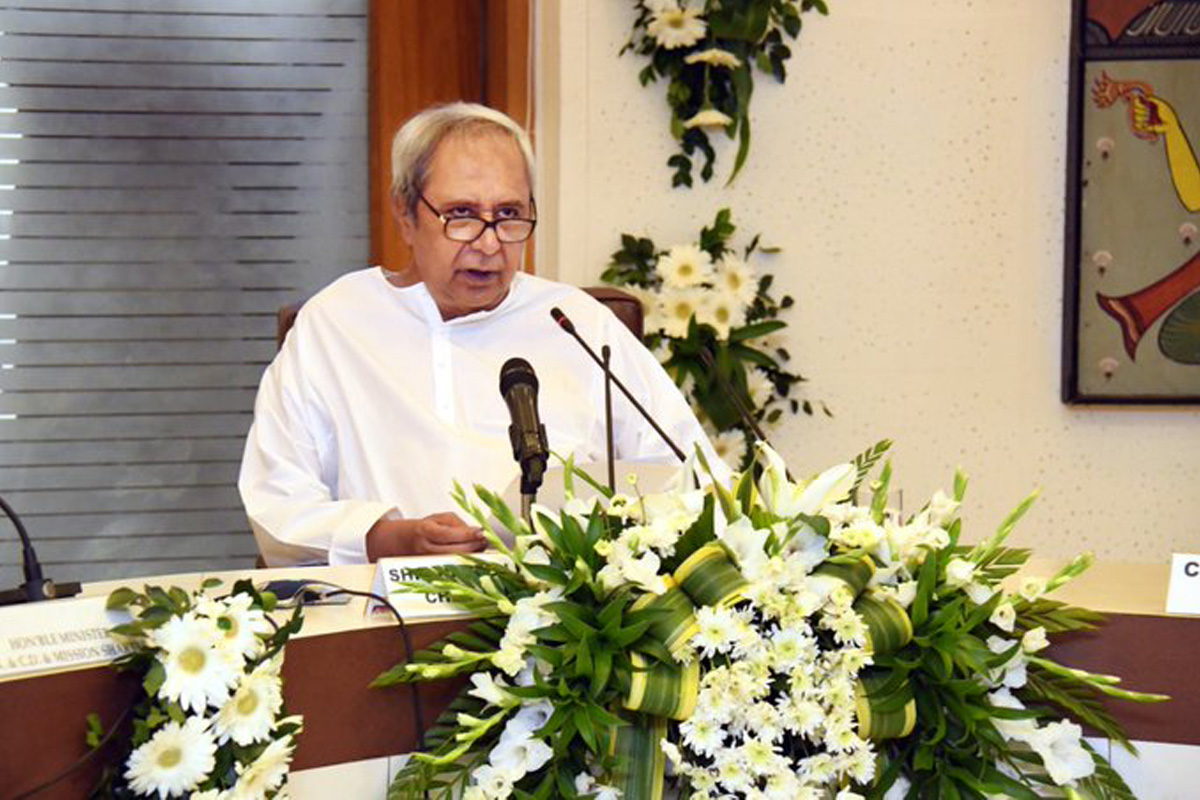Boat capsizes in Odisha’s Jharsuguda: Woman dead, seven missing
A 35-year-old woman was killed, and seven others, including three children, are missing after a boat they were travelling in capsized in Odisha's Jharsuguda, police said on Saturday.
Not that all or nearly most of the functionaries are under the weather; the uncertainty, that arose on Friday, stems largely from the Odisha Chief Minister, Mr Naveen Patnaik’s reservations over certain provisions in the 2020 NPR form, notably the date and place of birth of parents.

(Image: Twitter/@Naveen_Odisha)
While the coronavirus pandemic has inevitably deflected the focus from the discord over citizenship, doubts have arisen over whether the process to update the National Population Register (NPR) will begin on All Fool’s Day, after all.
Not that all or nearly most of the functionaries are under the weather; the uncertainty, that arose on Friday, stems largely from the Odisha Chief Minister, Mr Naveen Patnaik’s reservations over certain provisions in the 2020 NPR form, notably the date and place of birth of parents.
Having lent support to the BJP’s Citizenship Amendment Act, he has now raised issues that are close to the bone and has, accordingly, urged the Prime Minister to defer the NPR update. Mr Patnaik has cited cogent reasons while seeking a postponement.
Advertisement
“We are all at present fighting the COVID-19 epidemic,” he is reported to have written to the Prime Minister. “All efforts of the state machinery are directed towards containment of the spread. As the mobilisation for Census and other activities shall pose a great risk for field functionaries and people as well, I would rather suggest that the scheduled Census and related actvities be postponed in the country.”
While the proposal is concordant in the season of lockdowns, the fundamental reservations over parental date and place of birth call for far greater reflection than has been manifest thus far. Such data are not readily available, most particularly in the case of senior citizens.
The other conundrum is that all states are yet to complete the training of NPR and houselisting census enumerators. There isn’t sufficient time now left, not the least because curbs on the citizenry will be in force till 31 March. State governments, notably school staff, normally provide the manpower for Census operations.
This will not be feasible at this juncture with schools across the country closed till 15 April, when the Bengali New Year (Poila Baisakh) unfolds. Notably, the head of the Odisha government has expressed his reservations, but not the states that have passed resolutions in their respective Assemblies against the CAA.
And these include West Bengal, whose Chief Minister has been particularly vocal on the issue. Theoretically, no state can legally oppose the Census process since it comes under the Central list and has statutory protection. Having conceded that, the Centre ought to take a call on Mr Patnaik’s suggestion ~ “Thirty lakh enumerators will be involved to collect data by visiting each household during the first phase.
This has to be preceded by elaborate training, an awareness campaign and related activities.” Apart from such humane considerations, the essential data on citizenship represents a different kettle of fish altogether. On both counts, the exercise might hit the reefs after it is initiated.
Advertisement